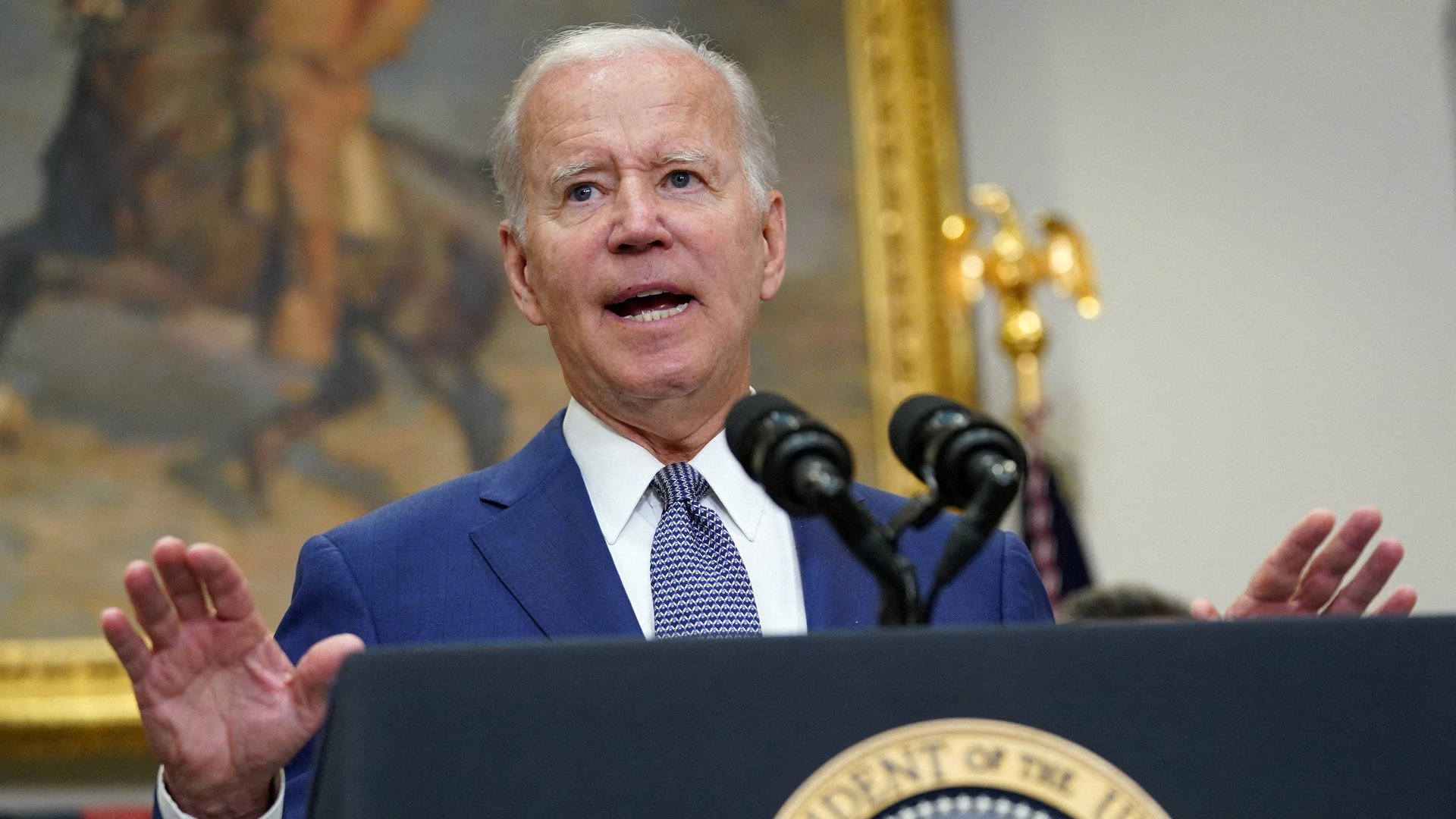A climate emergency declaration won’t fix America’s climate problem
Despite pressure from Democratic members of Congress and activists, US president Joe Biden will not designate climate change as a national emergency during a speech on July 20, the White House has said.


Despite pressure from Democratic members of Congress and activists, US president Joe Biden will not designate climate change as a national emergency during a speech on July 20, the White House has said.
That may be for the best.
Last week, senator Joe Manchin scuttled the flagship of Biden’s climate agenda by withdrawing his support for clean energy tax incentives and other climate initiatives in a stalled spending bill. It was the latest in a string of setbacks, following a Supreme Court decision in June that limited the ability of the Environmental Protection Agency (EPA) to mandate emissions reductions from power plants. The EPA is still cooking up several other climate regulations, but in the meantime, Biden is limited to executive orders he can issue unilaterally from the Oval Office.
Declaring a climate emergency would be procedurally easy for the president, and would give him the authority (pdf) to ban fossil fuel exports and offshore oil and gas drilling, and direct federal agencies and private companies to build more renewable energy. All of these steps would reduce emissions. The declaration itself would also send a political message that the US is at least nominally committed to addressing climate change.
Biden is unlikely to ban US oil exports
Biden already exercised different executive powers in June to speed up renewables manufacturing, and is expected to announce new climate-related executive actions today without the emergency declaration. But given the ongoing turmoil in the global energy market stemming from the war in Ukraine, it’s unlikely that Biden would want to use emergency powers to curb drilling or remove US oil from the global market. If anything, he has spent the last few months scrambling to increase global oil production, in order to curb the economically draining and politically toxic increase in gasoline prices. Curtailing oil exports would likely increase the price of gasoline, according to a Federal Reserve analysis.
That’s the outcome Biden is most keen to avoid—both because Manchin has said he won’t revisit his support for climate legislation unless inflation cools, and because high gas prices are a threat to the re-election chances of congressional Democrats in November. If Biden declares a climate emergency and then doesn’t do much beyond that, it may well backfire. His political opponents could still cite it as a case of executive overreach, while for climate activists it would look like hypocrisy or a broken promise.
Climate change isn’t really a political “emergency”
Globally, at least 2,248 adminstrations—including cities, states, and nations—have declared a climate change emergency. But the emergency executive powers of politics—which are meant to be temporary—aren’t well-suited to a long-term, society-wide problem like climate change. Climate change certainly contributes to a neverending series of individual and social emergencies, including Europe’s ongoing, deadly heat wave. But addressing it will require a broad overhaul of the economy, carried out via regulations and tax reforms that can outlast any one president. As elusive as these have been, they are still Biden’s best shot at making a lasting impact on climate.